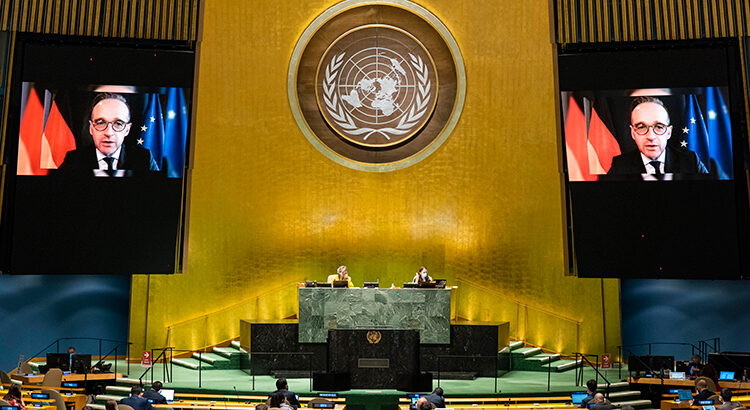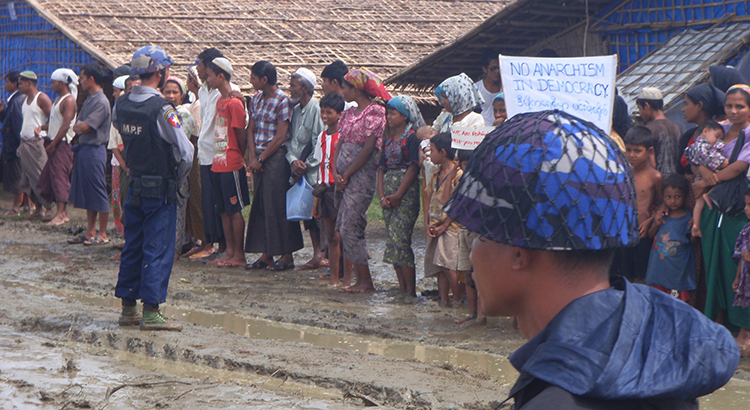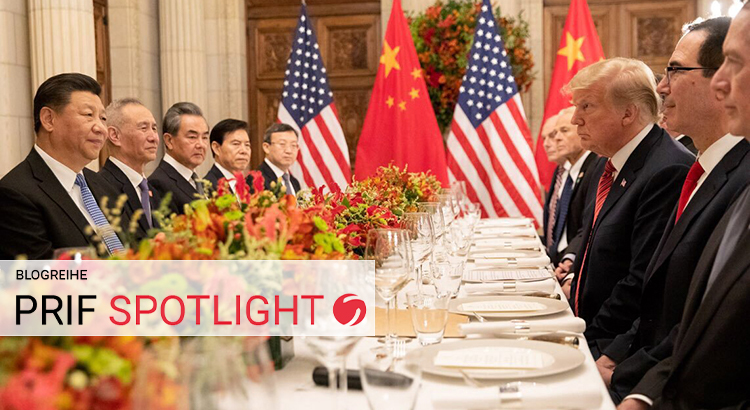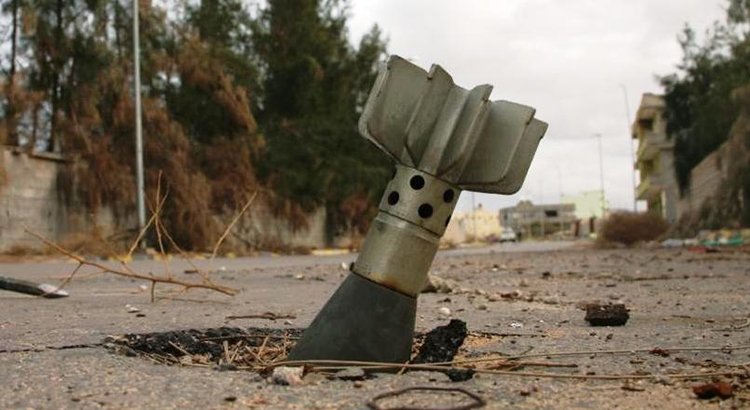The purpose of any German strategy of multilateralism must be to invest in the multilateral system and foster robust international organizations which strengthen the European Union’s Common Security and Defense Policy, and to prioritize the implementation of existing international regulations over the development of new sets of regulations.
Kategorie: English
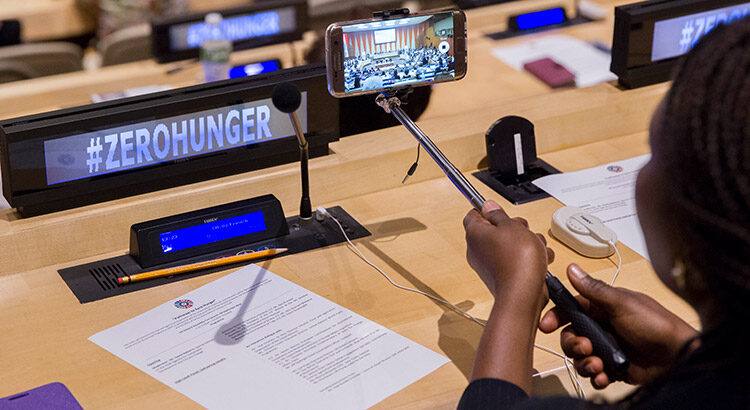
Foodies of the World Unite: World Food Day Reminds us to Politicize Nutrition
16 October is World Food Day. This year, spotlights are guaranteed because the United Nations World Food Program just received the 2020 Nobel Peace Prize. Despite these high levels of attention on food, the political and economic structures driving global production and consumption habits remain in the dark. Food has become a heavily individualized aspect of life. But who likes to eat alone?
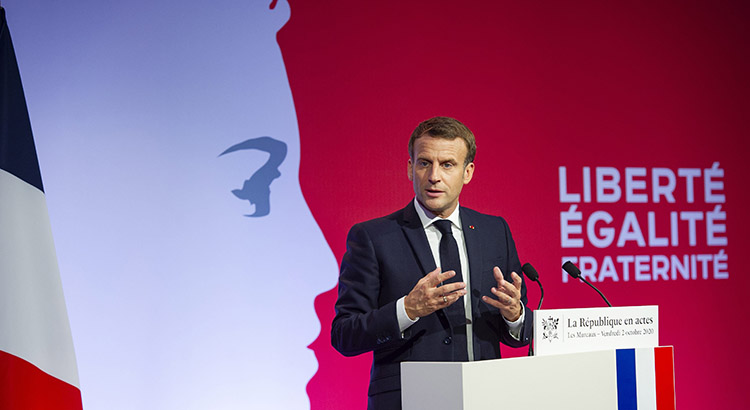
Macron’s plan for fighting Islamist radicalization – and what Germany and other European countries should and shouldn’t learn from it
On October 2nd French president Macron presented a five-point plan to address Islamist radicalization. The long awaited speech sparked debates in France and beyond. In Germany, some called it “historic” and a “wake-up call”, demanding a similar set of initiatives and central speech for the German debate. This is problematic for two reasons: first, while many measures in Macron’s plan are promising, others and the overall framing of the speech can prove counterproductive in terms of stigmatization and securitization. Second, the French centralist approach cannot and should not be transferred to the German federal and civil society-based system of preventing extremism.
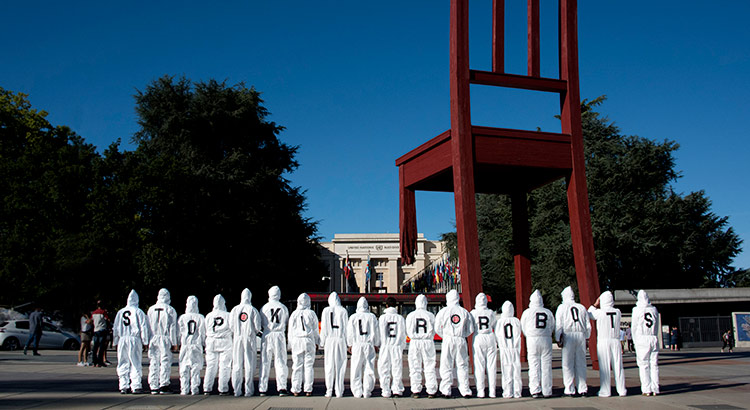
Digital diplomacy: The debate on lethal autonomous weapons systems in Geneva continues under unprecedented circumstances
Despite the global Covid-19 pandemic, the debate on lethal autonomous weapons systems within the Group of Governmental Experts (GGE) at the UN Convention on Certain Conventional Weapons (CCW) in Geneva, which has been going on since 2014, took place last week. With only a handful of diplomats present, the meeting was held in a hybrid format. While the pandemic and its restrictions might have been a factor that hampered progress in the debate, it went along better than many had expected. However, there were hardly any new arguments in the debate and the prospects of a regulation of LAWS did not really increase. Now is the time to make sure the deliberations build more substance because it should be in every state’s interest to avoid a technological arms race.
Hate speech in the context of mass atrocity crimes: How social media platforms help and hinder international criminal investigations
The May 2020 arrest of Félicien Kabuga brought an end to a manhunt spanning 26 years and two continents. The capture of the elusive alleged financier of the infamous RTLM hate speech radio station shows the importance of documenting hate speech for court proceedings if and when fugitives are eventually arrested. Today, extremist hate and atrocity speech in the context of genocide and war crimes takes place and is spread online. However, social media platforms have been slow to respond to and document it, and to cooperate with international authorities in doing so.
Fraying Ties: The Securitization of the US-China Relationship
The security dimension has long been the most contentious aspect of US-China relations, marked by strategic mistrust, great-power competition and several flashpoints in East Asia. Until recently, these tensions were moderated by much warmer and closer economic ties, civil society exchanges in business, education, academia, culture and tourism, as well as shared interests in globalization and trade. However, recent moves by the US and Chinese governments to “securitize” the previously cooperative aspects of their relationship have fundamentally altered this dynamic and greatly increased the likelihood of a permanent confrontation between the two great powers.
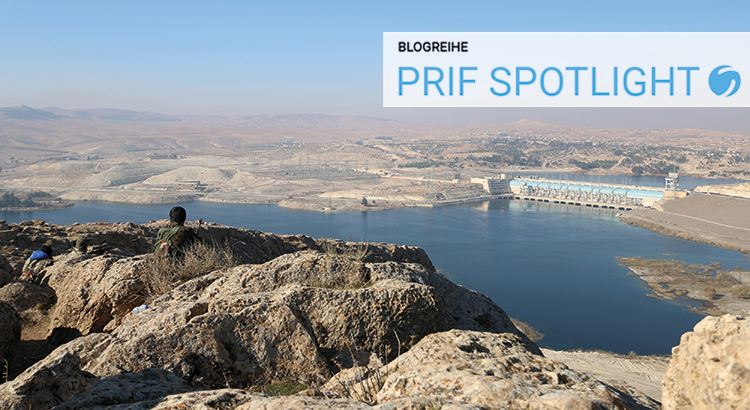
An Ancient Practice with a New Face: The Use of Water as a Weapon in Times of Climate Change
Throughout history, state and non-state actors have used their power over water and water infrastructure to demonstrate the power they have to oppress civilians or gain ground in combat. Today, climate change and associated water scarcity make this practice even more effective and harmful. However, the use of water and water infrastructure as a weapon continues to be neglected in both the political and academic arenas. The time is long overdue for decision makers and scientists to raise awareness of and spur action that addresses this phenomenon, but as water becomes increasingly scarce it has become an urgent matter.
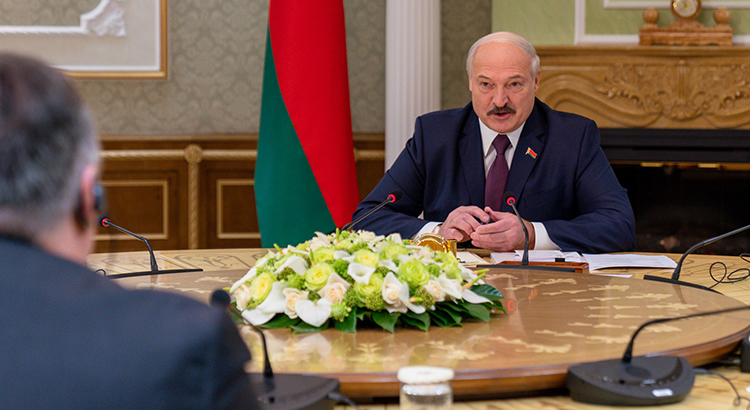
Winning Elections but Losing the Country. What does a Weakened Lukashenka Regime Mean for European Security?
No international election observers, no real opposition candidates, internet shutdown and the most brutal crackdown on peaceful street demonstrations the country ever witnessed – these are the initial results of the recent presidential elections in Belarus. Despite the aforementioned violations of democratic procedure, this comes as no surprise for all those familiar with the realities in this East European country which has been ruled for 26 long years by the former collective farm manager Alyaksandr Lukashenka. And yet August 9 2020 is likely to go down Belarus’ history books marking a turning point both for the country and for European security as it opens a new chapter of competition between Russia and the West for Eastern Europe.
Counter-narratives – curse or blessing?
Taking stock of the increased spread of extremist narratives – especially in social media – the search for appropriate counter-measures intensifies. Consequently, the formulation and dissemination of so-called counter-narratives is often discussed as one possible approach to weaken extremist influence. While there are good reasons in favor of counter-narratives, they also come with risks and uncertainties. This article outlines essential pros and cons for their use in social media and provides insights into the current state of research on the effects of counter-narratives. Finally, it makes a proposal for a balanced approach: Counter-narratives may not be the only cure for extremism, but can serve as an effective tool for prevention and de-radicalization.
The Libyan Civil War: Shining a Spotlight on a Problematic Arms Export Policy
The German government frequently stresses that it pursues a “restrictive arms export policy”. And yet, some of the biggest customers of German arms manufacturers are countries in the Middle East (MENA region) in particular. The United Arab Emirates (UAE) was one of the top ten recipients of German arms exports in 2017 and Turkey also regularly purchases German weapons technology. An Expert Report on the implementation of the UN Security Council resolution 1973 identifies these two countries, along with Jordan, as suppliers of weapons and military equipment to the warring parties in the Libyan conflict. In so doing, they are breaching the UN arms embargo in place since 2011. Germany exporting arms to recipient countries such as these carries the risk of weapons showing up in Libya’s civil war zone and is therefore something the German government should not be pursuing.
